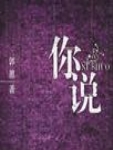Chapter 1 The life changes of four generations of civilian families: what do you say
Suspension and Scattering: A New Exploration of Family Fiction (Wang Qian)
Text/Wang Gan
Among the female writers of the younger generation, Guo Hui only started writing novels in 2003. Compared with those young writers of the same generation who started writing novels in the mid-1990s, she started very late.But her writing is delicate and her writing is solid.Guo Hui belongs to the realist line of true writing. In her novel "Luo Chunhua", she describes the turbulent and even legendary life of Liu Qing, a young girl from other provinces wandering in the capital, and creates a unique character in contemporary literature. The unique artistic image vividly shows the social scene and the variation of human nature in the transitional period of the times.
After reading her new work, I was quite surprised. In "Luochunhua", the enthusiastic and somewhat melancholy narrator disappeared, replaced by a mature narrator who has gone through vicissitudes and calmly.She told about the life history of Bian Deren's family from the early years of the Republic of China to the 21st century, the appearance of the four generations of the Bian family, their life status, lifestyle, success or failure, and the cycle of life.There is no grand narrative with ups and downs, nor the drama of a similar story.Every character in the Bian family in the novel is ordinary and real, and they are characters that can be seen everywhere in daily life but are often ignored.Their profligate way of living and their lives condense the life scenes of a social group.Reminds us of the story of Lao She's Qi family.It shows the tragic years of the fall of Beiping on the large cross-section of the Anti-Japanese War, and through the vertical time changes and the reproduction of family members, it portrays the images of several generations to express the complexity of life and the power of life, and shows the Chinese society. A picture scroll of life in the past hundred years.
The sophistication and calmness in the narrative of the novel can be said to have reached "zero degree of emotion". "Emotional Zero" is a concept I put forward when I explained "New Realistic Fiction", which means that when describing characters and the external world, writers should try to hide their subjective likes and dislikes and value judgments, and use phenomenological The term is "suspension".Because when a writer is creating, too much subjectivity intervenes in people and things, which will affect the true appearance of the characters and events in his works, and damage the original ecology of life.And abandoning the subjective likes and dislikes and the externalization of emotion, the novel may achieve the historical truth and life truth we are pursuing.Of course, this will bring about another disadvantage, that is, in the later stage of the development of new realistic novels, some novels appear to be trivial, dull and mediocre.But successfully circumvented this drawback.By comparing the different lifestyles and fates of several generations, the author rewrites their growth and development process, grasps the key life details and expresses them, instead of describing those trivial and almost morbid life trivialities.For example, Bian Yinyu (later renamed "Bian Mi"), who wrote about the third generation's hard work in Vanity Fair in Shanghai, did not take the trouble to describe the sex on the bed like some popular female writers' novels, but through "Sex Photo" Bian Mi's psychological trajectory and careful design before and after publication make Bian Mi's character vivid and lifelike.The writer's description of the characters maintains a high degree of objectivity and calmness, and does not fall into the tedious and lengthy nature of naturalism and photography, but is concise and cold.
New attempts and explorations have also been made in the shaping of characters.General family novels often use the ups and downs of a main character to unfold vigorous dramatic conflicts.On the other hand, it draws on the way of scattered perspective, and replaces the central character with different characters propagated by the family. The different atmospheres of different times seen in the perspective of these different characters constitute a special chronicle.The history of the Bian family is the history of life and life, and the history of constant struggle against fate. They fought tenaciously against the hardships brought about by hunger, natural disasters, diseases and political movements. development in different directions.Although there is not much ink on each character, almost every character has a typical detail, action, and language to reflect their personality.For example, Bian Huan, the fourth generation, had a dispute with her mother about birth and fate, and the words in it are very evocative.And the "You shouldn't have given birth to us" spitting words, its "cynical" demeanor is all in it, not only reflecting the special contradictions of the family and complaints about the family environment, but also complaints about fate.
Although it describes the family story, it expresses the perception of life and the infinite love for life.Perhaps the theme of the novel should be summed up by Bian Yinxie's emotion at the end: "No matter how lamented, no matter how lost, no matter how sad, they will also stimulate the process of life; expand the family, expand life, and dare not neglect life." "Bian Yinxuan is indescribably moved and grateful. What is moved is that life has given her happiness again; what is grateful is still life, the power of continuity and chance." This "continuity" and "occasion" are the power of the family. It is also the power of fiction.I sincerely hope that Guo Hui will write more powerful masterpieces on the road of literature in the future.

